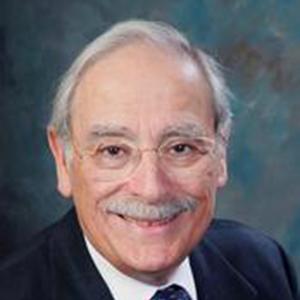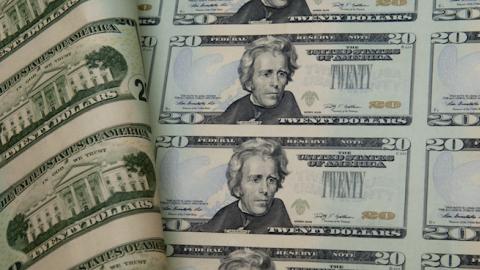Who could be against a rule that requires investment advisers to act in the best interests of their retiree-clients? Donald Trump, the Washington branch of the Goldman Sachs alumni association, The Wall Street Journal, and well-intentioned policy wonks who have never met a regulation they like, that’s who.
President Trump has set in motion a process that will allow the so-called fiduciary rule to die a quiet death, rather than become effective in April. He has postponed the application of the rule, which would require brokers to act in "the best interests of clients," with the expectation that postponement will become permanent. That's what Gary Cohn, a Goldman alumnus who heads the National Economic Council, says he wants to happen. The intention of the rule was to protect investors, especially retirees, from advisers who would assign their clients' interests a lower priority than earning fees from sales of financial instruments. Some who are advising investors are already subject to such a rule but others—insurance and annuity salesmen, for example—are held to a lower "suitability" standard. Opponents of the rule argue that it will unleash a wave of meritless lawsuits by unhappy investors when the prices of shares and other assets decline, and will deprive small investors of the advice of professionals unwilling to expose themselves to that risk.
It is of course true that the fiduciary rule, 1,023 pages in length, opens a path to the courthouse for class-action lawyers, and that not all judges are willing to dismiss meritless suits. But that is true of any rule, including those that require food companies to label their products truthfully. In the end, it is the regulators that matter as much as the regulations, as I have learned during decades of appearing before different regulatory bodies. Some regulators are dumb, some endlessly seek ways to expand their reach, others look for solutions that as closely as possible mimic the results that markets would produce, still others know when circumstances have changed enough to allow or require them to find a different way of supporting their families. Most notable among the latter was Alfred Kahn, the late Cornell professor who enabled the Civil Aeronautics Board to end its regulation of the airline industry, and to let the market decide which planes could fly to which cities, charging prices that would attract customers.
One obvious step a president can take to minimize the reach and cost of any regulation is to appoint regulators whose first instinct is not to figure out how to expand the reach of their legislative remit. So far as we can tell from his appointments thus far, Trump aims to do just that. Which explains the revolt of the masses of civil servants and rules-interpreters who have made a career of taking long-dormant bits of legislation and parlaying them into control of entire industries. Think the EPA. If Trump has his way, that game is over. But it is important not to over-use the rule-shredder.
The president's men should begin their review of the fiduciary rule by recognizing that the sale of investment advice is different from the sale of many other products. Commissions give the salesman an incentive to do his clients harm. He makes a living getting them to buy and sell financial instruments, and maintains his living standard by getting them to do so often—it's called churn—and by persuading them to buy the products that offer the highest commissions. Not all will succumb to such perverse incentives, but some will.
Added to these perverse incentives is what economists call "information asymmetry"—the seller inevitably has more knowledge of the product than most buyers can have. We now have Yelp and HomeAdvisor and the like to recommend the best plumbers, but I doubt they are up to the job of warning investors away from bad advisers.
In anticipation of the activation of the rule Bank of America's Merrill Lynch is offering retirees a fee-based rather than commission-based advisory service and, for investors who might find that too expensive, a robo-advisory service is aimed at clients who have at least $5,000 to invest. The fee, 0.45 percent of assets, is less than half that charged by Merrill's brokers. UBS, Wells Fargo, and Morgan Stanley are readying similar digitalized services. In short, the mere prospect of the fiduciary rule has already increased reasonable options for small investors. All to the good, but another nudge in the direction of developing incentives that align advisers' and investors' interests would prompt others to get on the reform bandwagon.
Even if President Trump agrees with the rule's critics, he might reflect on the likely political fallout from scotching the fiduciary rule. One lesson those of us who have tangled with the regulatory agencies have learned the hard way is that anecdotes are more politically potent than data. If he scraps the fiduciary rule, the president had better be prepared to watch a stream of defrauded widows tell tearful stories to TV anchors about how they were taken in by the tips of smooth-talking advisers.
At a recent partially televised meeting with business leaders, Trump, a well-informed investor, thanked Larry Fink for making him a lot of money. Fink, CEO of BlackRock, a premier investment advisory group with over $5 trillion under management, is unlikely to do cold-calling in search of new investors or to fritter away his reputational capital by running up his firm's already-adequate fees. The president, Cohn, and other members of the administration's branch of the Goldman Sachs alumni association might not need a fiduciary rule. Many less advantaged retirees probably do, a probability high enough to persuade the president to do what he does least well—think twice.
















